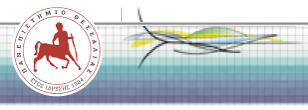MARE NOSTRUM reports available online!
Mare Nostrum is an EU-funded cross-border project exploring new ways of protecting the Mediterranean coastline. Mare Nostrum, has a budget of EUR 4.32 million, of which 90% was funded by the EU. The project’s primary goal is to contribute to bridging the policy-implementation gap between the ideals of Integrated Coastal Zone Management (ICZM) and its effects on the ground. The project will develop new tools for realistic implementation of ICZM and is expected to lead to improved dialogue and cooperation across national borders. Mare Nostrum is comprised of 11 partners from Malta, Greece, Israel, Jordan and Spain, including leading research institutes, local municipalities, environmental NGOs and port operators. The project builds upon existing international efforts, such as the Barcelona Convention and the Protocol on Integrated Coastal Zone Management in the Mediterranean of 2008.
Existing Knowledge on Legal-Institutional Frameworks for Coastline Management: The International, EU and National Levels
The first report of the Mare Nostrum Project compiles the country-specific legal-institutional reports of the project’s partners. The report provides information on coastal management programs, international instruments, and environmental issues affecting the Mediterranean. Recognizing the key role of international law in promoting Integrated Coastal Zone Management (ICZM), the report reviews key international ICZM instruments, focusing on the Barcelona Convention’s 2008 ICZM Protocol for the Mediterranean. The report reviews cutting-edge issues confronting the Mediterranean coastline’s environments relevant to Mediterranean countries. The coastal environments of the project’s partners are marked by rising pollution levels, overexploitation of natural resources, and loss of biodiversity – all direct results of intensive urbanization and escalating tourism. Meanwhile, the loss of agricultural land has led to degradation of ecosystems, soil erosion and the loss of fertile soils and a mounting demand for water. The country-specific legal-institutional reviews demonstrate that Mediterranean countries share many of the same impediments to successful implementation of coastal laws and policies, despite the variations in their laws, institutions, political regimes and cultures.
Click here to download the full first report.
Existing Practices and Impediments to Implementation: The Local and Cross-National Level
The second report of the EU-funded Mare Nostrum Project has identified the major impediments inhibiting Integrated Coast Zone Management (ICZM) implementation in countries across the Mediterranean Sea. The major challenges are outlined in case studies primarily from Spain, Malta, Greece and Israel included in the report. The document represents an important step for Mare Nostrum towards formulating strategies for improvement. The main barriers include lack of cooperation among different government bodies, insufficient translation of regulations on paper into action, clientelism, a lack of political will to carry out reforms to update and enforce environmental legislation. In addition, a tendency to forgive developers for illegal construction and grant it legitimacy once it’s built, problems in clearly defining the public domain coastal setback, and loopholes and vagueness undermining existing legislation have all been identified as the main impediments.
Click here to download the full second report.

